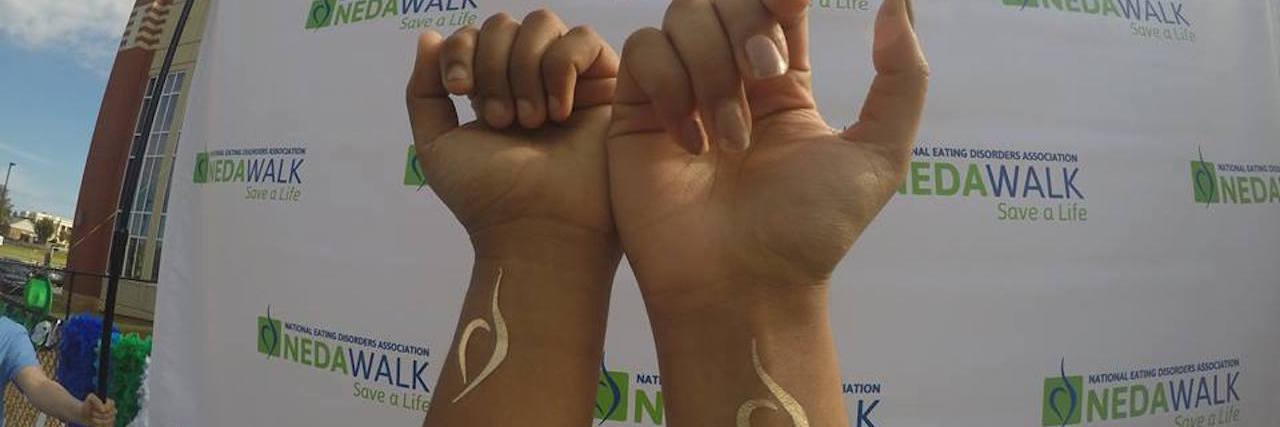Statistics say that 8 million people struggle with an eating disorder, but you never expect to see it in your daily life. 1 in 200 have anorexia, sure, but surely not one of these people. Even as someone who does struggle with an eating disorder, I was absolutely shocked last week when my favorite teacher’s sleeve pushed up and revealed the NEDA eating disorder symbol tattooed on her wrist.
I thought about it for the rest of class – the fact that this woman, the one who I look up to and respect and who has taught me so much more than just academics — that this woman is in recovery from an eating disorder. I considered asking her about it. But by the end of class, I resolved to leave it be out of respect for her and the classroom atmosphere.
But if I could talk to her about it, this is what I would say:
First, I would tell her how inspired I am that she could take something so painful and challenging and turn it into the life she has today. Before I saw the tattoo, which is just a small representation of one of the challenges she faces, I knew she was an incredible human and mind who had overcome struggles. Now, though, it seems more personal. I am so encouraged to see someone with an eating disorder who has built a life and a character like hers.
I would ask how she’s adjusting to the city and I would tell her about the NEDA meetings and support community in our area. Being an out-of-state student still firmly in the middle stages of recovery, I understand how difficult it can be to move somewhere new without a strong support system in place and have to start from scratch in many ways.
I would tell her how brave I think she is for getting the tattoo, for committing so fully to recovery and owning her narrative. I would ask her how she did it. I would ask her how I can do it. I would tell her how much I respect her. I would tell her that her past and her struggles don’t define her at all, and that she’s a wholly beautiful person. I would tell her how much I respect the discussion and atmosphere of safety and curiosity that she brings to the classroom, and that I am so completely grateful — more than she knows (or maybe just as much as she knows) — for her appreciation of self-care.
Or maybe I would just tell her thank you. Thank you.
If you or someone you know is struggling with an eating disorder, you can call the National Eating Disorders Association Helpline at 1-800-931-2237.
We want to hear your story. Become a Mighty contributor here.
Lead image via NEDA Facebook

